US arrogance about NATO expansion led to ‘Russia’s fear of encirclement’, says expert
The arrogance of the US administration’s foreign policy with regard to NATO expansion has led to “Russia’s fear of encirclement” as Washington failed to address Moscow’s concerns about the Ukrainian crisis, a political expert says.
Stephen Herzog, a senior researcher in Nuclear Arms Control at the Center for Security Studies (CSS) at ETH Zurich, made the comment in a phone interview with Press TV on Saturday while discussing the Russian military operation in Ukraine as it entered the second month.
“I agree that continued NATO expansion to the borders of Russia has contributed to Moscow’s fears of encirclement. This is particularly true in the case of the accession of the former Soviet Republics of Estonia, Latvia, and Lithuania to NATO in 2004,” Herzog said.
“Russia has the world’s longest territorial borders and a vast array of security interests. The country has been invaded many times throughout its history and seeks spheres of interest and buffer states separating it from its adversaries. NATO’s 'open-door policy' and discussion of potentially admitting states like Georgia and Ukraine among some officials and analysts clearly has amplified Russian fears,” he added.
The senior researcher said the US foreign policy establishment has often failed to address the Kremlin’s security concerns.
Ruling out the possibility of Ukraine being admitted to the US-led military alliance’s membership, Herzog said, “NATO has very specific membership criteria for accession, and Ukraine is quite far from satisfying these requirements. There is no chance Ukraine will be admitted to NATO anytime soon.”
Nevertheless, the conflict in Ukraine violates international legal principles of state sovereignty and is creating a massive humanitarian crisis, he said.
"This is also how the overwhelming majority of United Nations General Assembly members continue to vote. I have seen no evidence supporting Russian allegations that the invasion is to de-Nazify Ukraine and eliminate potential threats of weapons of mass destruction. As we learned when the George W. Bush administration invaded Iraq in 2003, it is critical for the world to verify such claims before a country starts a war."
In a televised speech on February 24, Russian President Vladimir Putin announced a “special military operation” in Ukraine following Moscow’s recognition of the eastern regions of Lugansk and Donetsk, collectively known as Donbass.
The conflict has provoked a unanimous response from Western countries, which have imposed a long list of sanctions on Moscow. Russia says it will halt the military operation instantly if Kiev meets Moscow’s list of demands, including ruling out Ukraine’s membership in NATO.
Regarding the human tragedy, scenes of civilian casualties, families running for their lives, and cities destroyed are deeply moving, Herzog said, "I am heartened that so many countries are accepting large numbers of Ukrainian refugees among their societies."
"I would hope, however, this crisis leads to a greater acceptance of refugees overall in the West, not just Ukrainians. The treatment refugees from Afghanistan, Iraq, and Syria received was far less friendly and oftentimes simply unacceptable," he added.
Herzog said while he "wouldn’t say a new world order is upon us just yet, but the war has certainly impacted a lot of elements of global politics".
"Russian President Vladimir Putin’s willingness to revise the borders of Europe and threaten the use of nuclear weapons has ushered in an era of renewed strategic competition with the West.
"The unwillingness of NATO to intervene suggests that Russia is still capable of deterring the United States and its allies, despite their military power. However, the poor performance of the Russian military has so far surprised many observers. I expect this and economic sanctions to significantly increase Russian dependence on China. How that all manifests and shapes the international order still remains to be seen."
Asked whether the military conflict in Ukraine would go nuclear, Herzog said risks of nuclear war are elevated compared to earlier this year, adding that NATO appears either deterred by Russian threats or unwilling to intervene to help the Ukrainians.
“As the refugee crisis continues and more videos of the conflict circulate in the news and social media, calls for Western intervention will grow. While the history of the Cold War suggests minor provocations will not lead to a 'nukes on Washington or Moscow' scenario, there are real dangers associated with possible NATO military activities. Keep in mind this conflict is not just Ukraine versus Russia. It is Ukraine, aided by NATO intelligence and armaments, fighting Russia,” the political expert said.
“If the Western role grows, it is essential to determine what 'red lines' cannot be crossed. Russia has nearly 6,000 nuclear weapons. The United States has around 5,500,” he added.
For decades, Herzog said, "we have lived in a world where all major cities in NATO countries and Russia are mere minutes away from being destroyed by nuclear-tipped ballistic missiles".
"Publics are generally not aware that this situation remains true today. Perhaps increased attention to the possible nuclear elements of this crisis will lead to long-overdue public engagement and calls for renewed arms control,” he added.
Russia has already declared that it will only use nuclear weapons if its very existence is threatened by the West.
‘Textbook definition of terrorism’: Tehran denounces Pelosi’s call on US to exact ‘pain’ on Iranians
VIDEO | 39th AU summit opens in Addis Ababa with focus on water security, peace, and development
VIDEO | Iran: The stronghold Washington lost
Anti-Iran ‘Munich circus’ shows Europe has lost geopolitical weight: Araghchi
Swiss to act as venue of next round of Iran-US talks: Report
Report: Over 50,000 soldiers fighting in Israeli military hold foreign citizenship
Danish PM warns US attack on Greenland would spell end of NATO
Power running out at key Gaza hospital, ICU patients at risk: Report


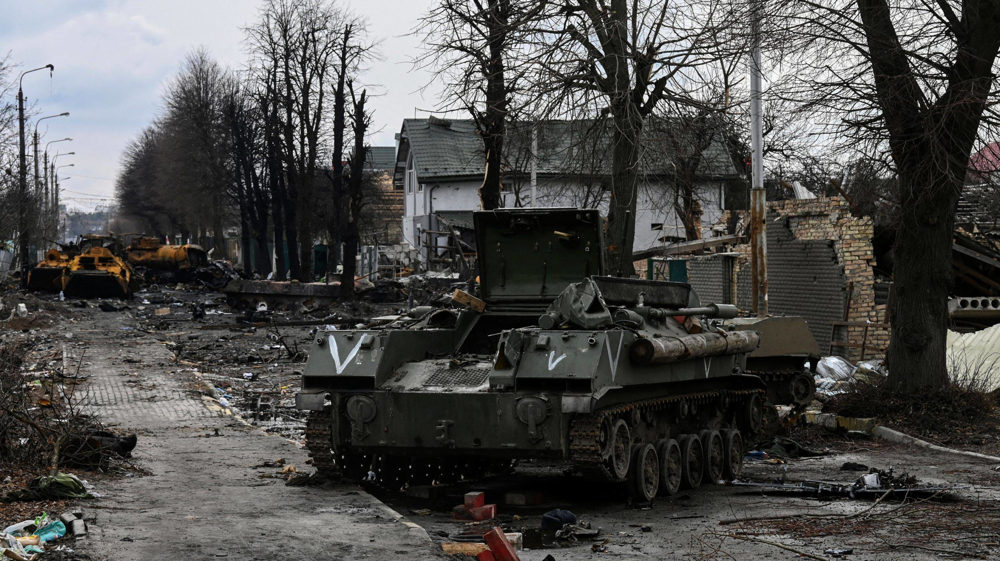
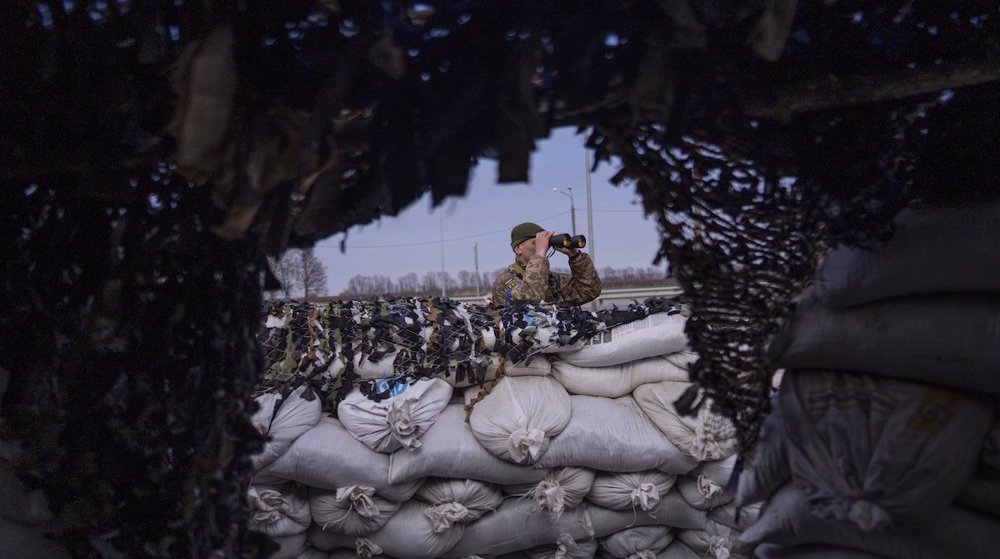
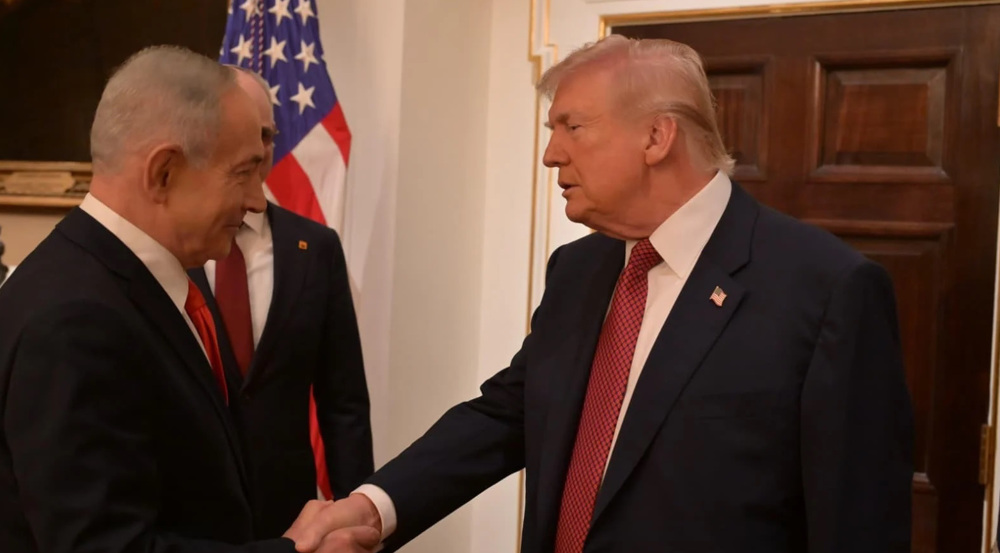
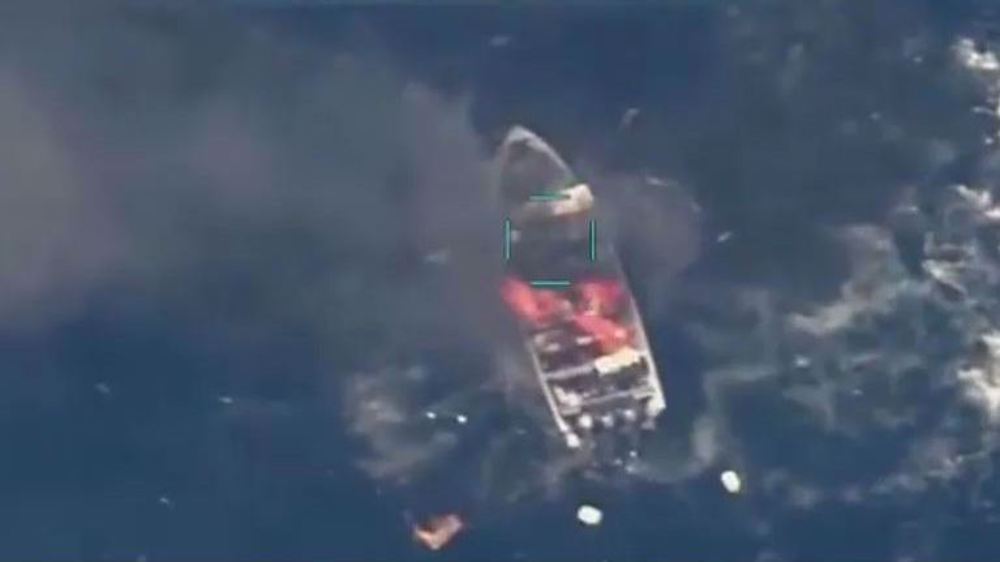
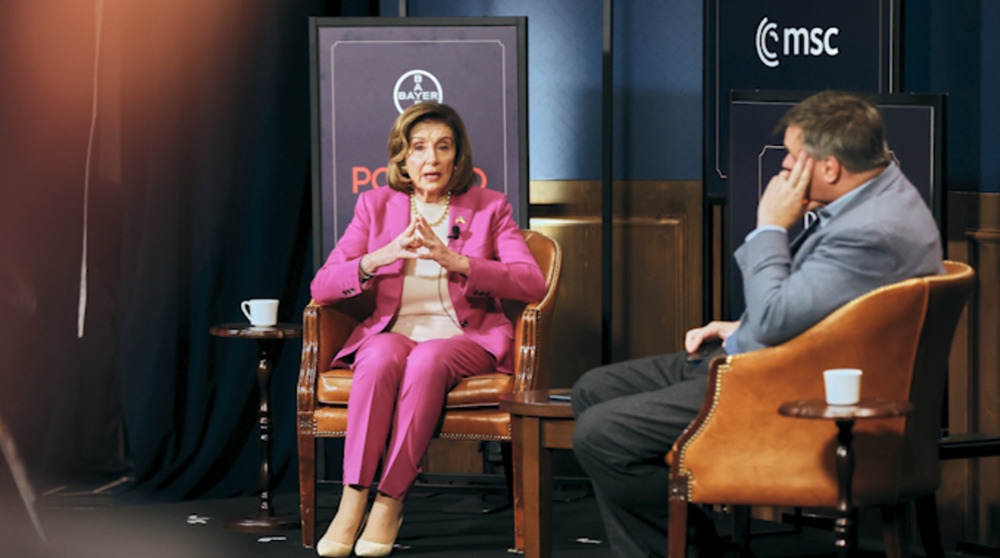




 This makes it easy to access the Press TV website
This makes it easy to access the Press TV website